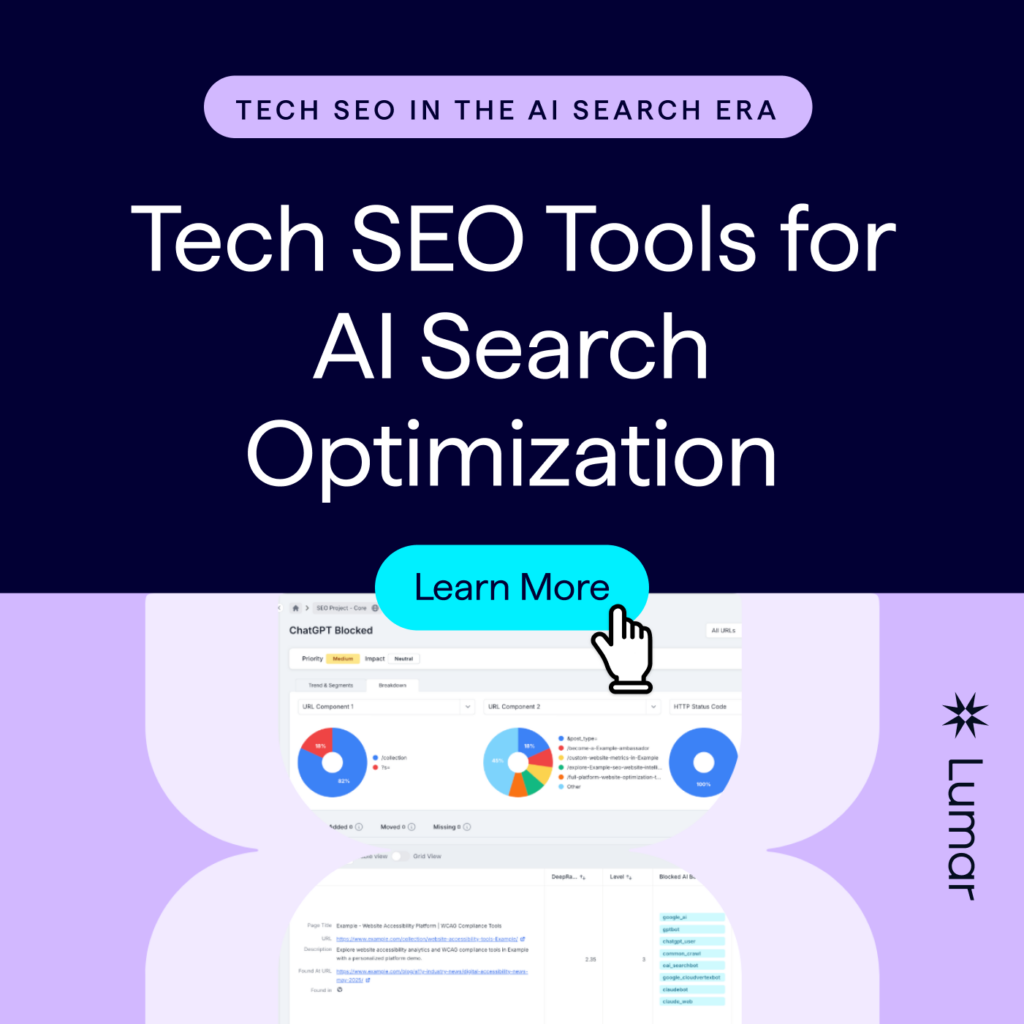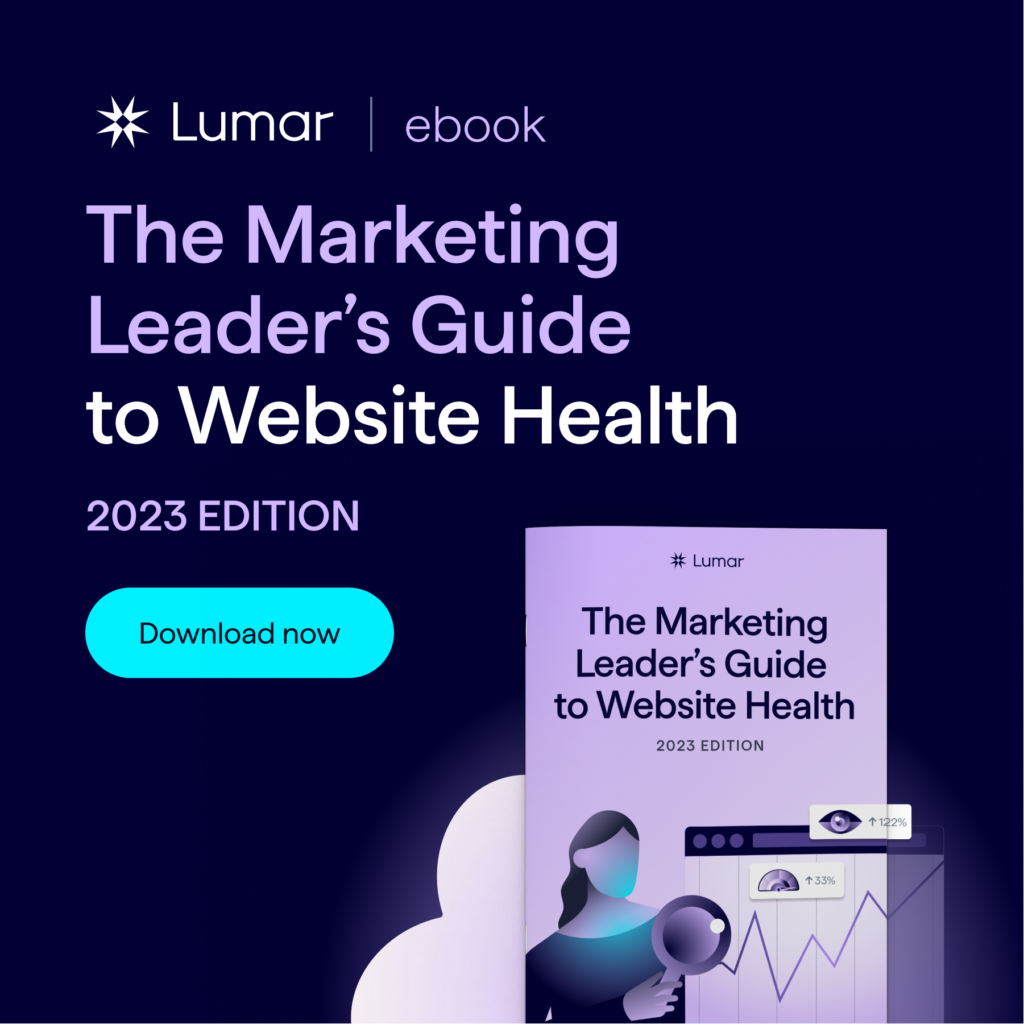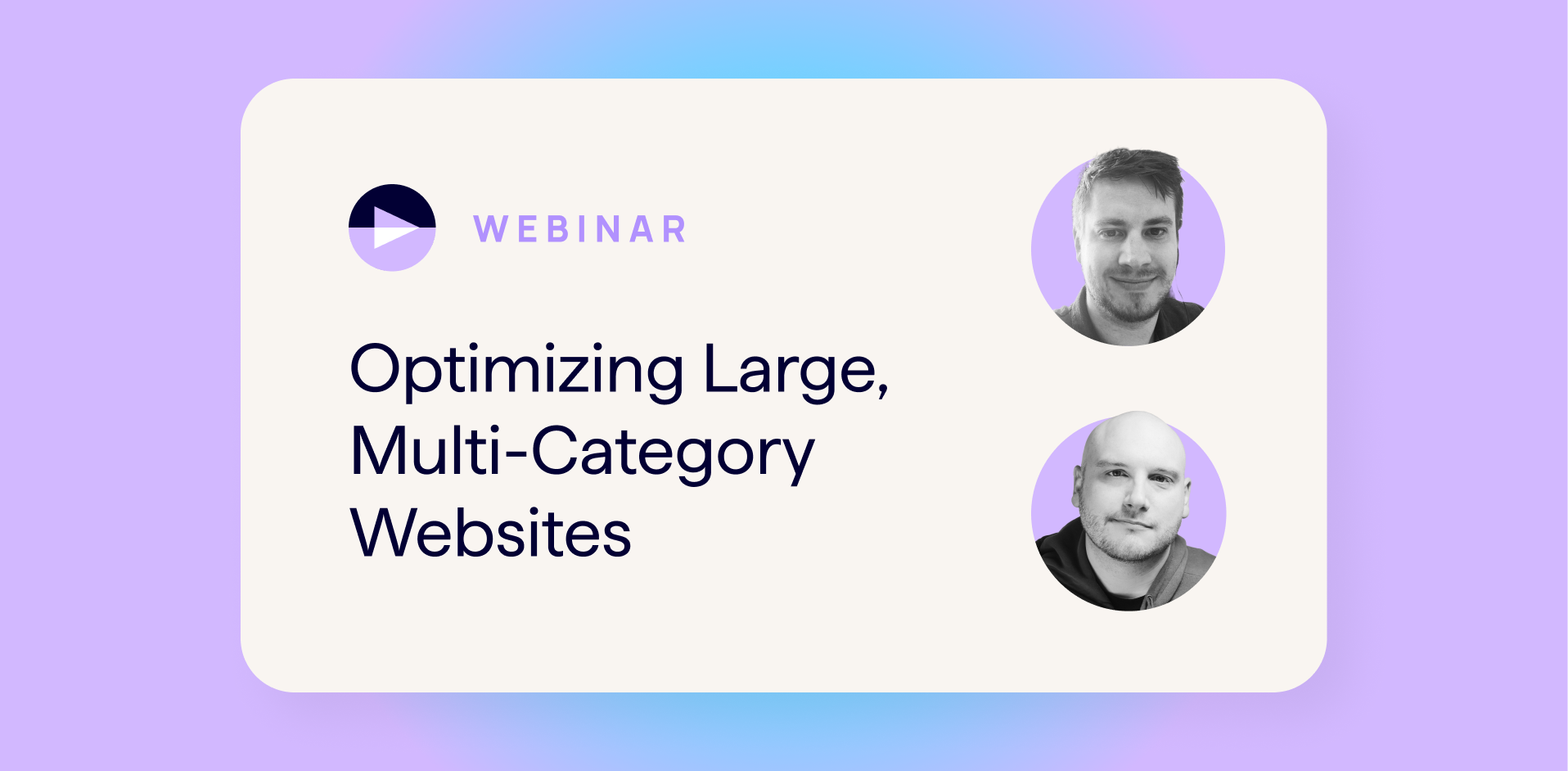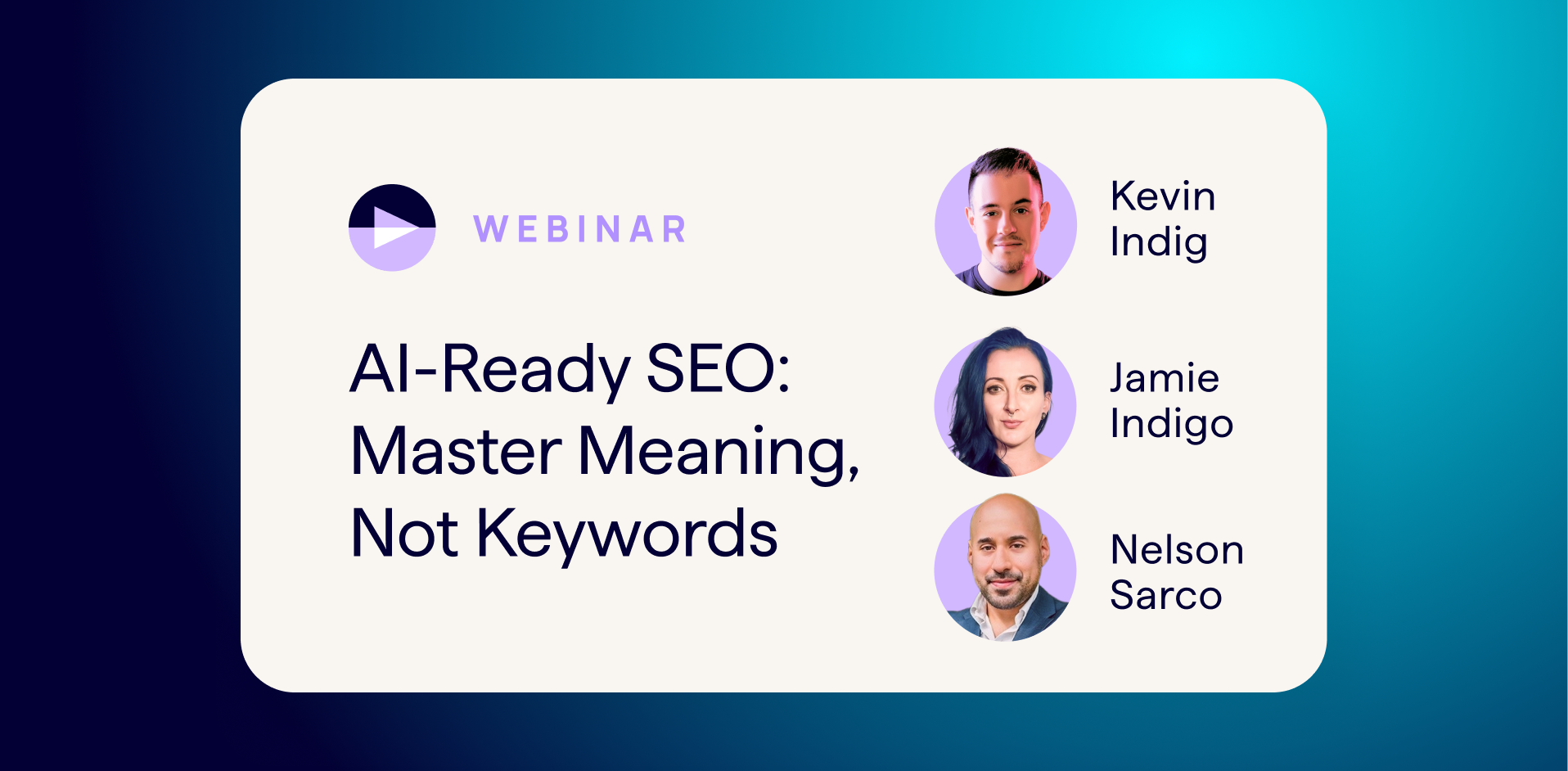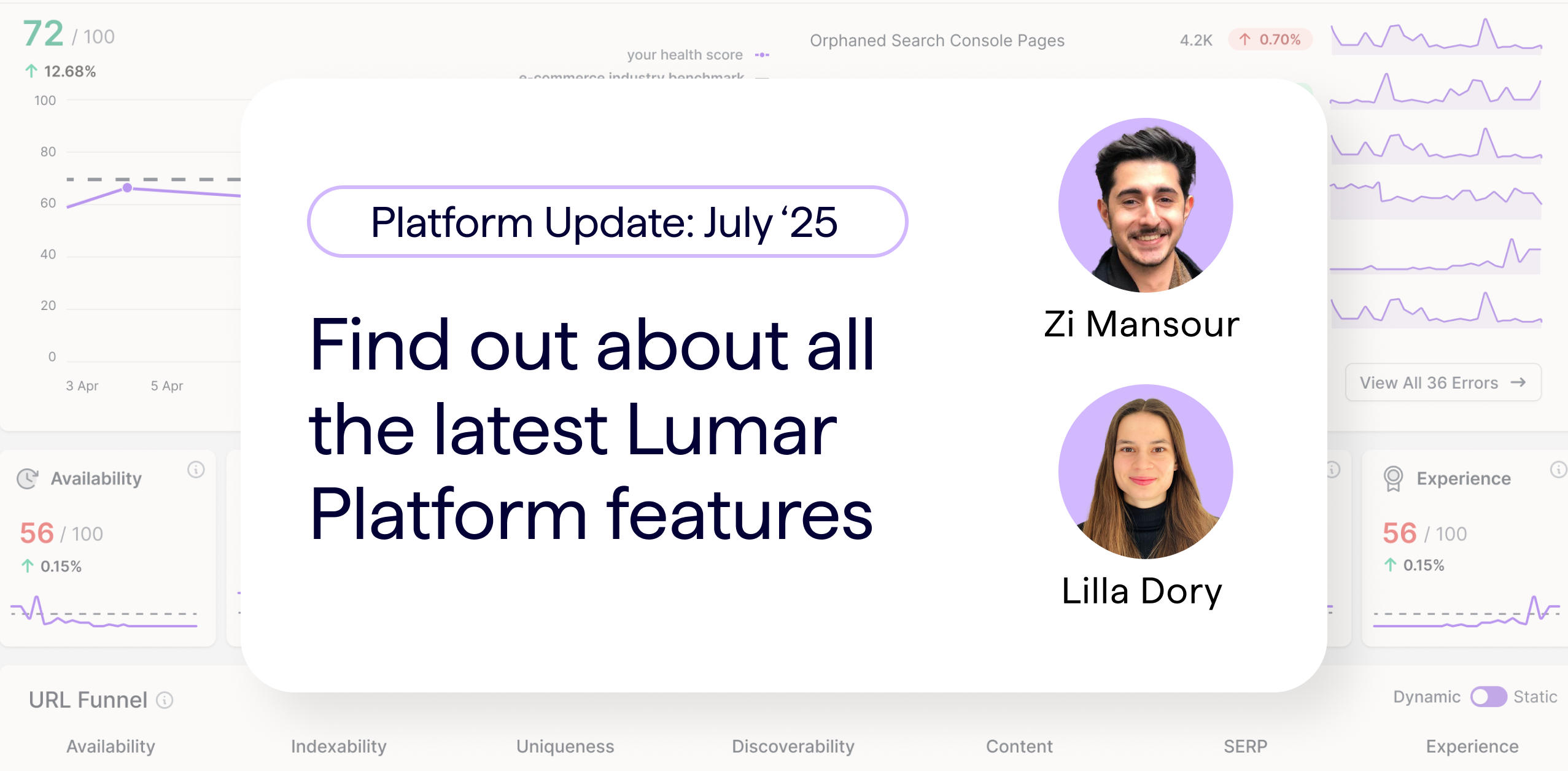The latest in our ongoing webinar series digs into artificial intelligence (AI) and large language models (LLMs) and the impact they are having on search.
This past Thursday our very own Anne Berlin was joined (remotely) by Myriam Jessier. Jessier is an SEO trainer and consultant at PRAGM, and takes a nuanced view on how AI and LLMs are likely to change the search industry as they become more embedded in our everyday lives.
Read on for our key takeaways from Jessier’s presentation. The full webinar – including polls and the Q&A – is available to watch on-demand in the accompanying video.
The Changing Landscape of Search Engines and SEO
For Jessier, although they are confident AI and LLMs are and will continue to have an impact on search, it is not worth trying to argue that such technologies will be either a positive or negative thing:
“Everybody and their mother is talking about generative AI. How it is going to change everything for the better, or the worse, or it depends. I think the truth is not quite definite.”
Jessier acknowledges that a new paradigm—a set of beliefs, values or techniques that are shared by a community and used as a foundation for further research or practice in a specific field—is coming. For Jessier, there will be new beliefs as to how a Search Generative Experience (SGE) works, different values in terms of content, but also differences in things like time, billing and metrics. LLMs will bring new ways for us to think about these things.
But we also need to consider the flaws in LLMs. Jessier shared Garry Illyes thoughts that LLMs have a high wow factor, but can be detached from reality. Jessier also refers to a quote from Clayton Christensen in The Innovator’s Dilemma:
“This isn’t the disruptive technology we think it is. Most new technologies foster improved product performance. I call these sustaining technologies.”
Clayton Christensen, The Innovator’s Dilemma.
And, in essence, Jessier agrees that AI and LLMs are ultimately sustaining technologies too. It can assist in our work. It’s probably going to reinforce how we think about better marketing—or horrifyingly bad marketing—but it’s not here to disrupt.
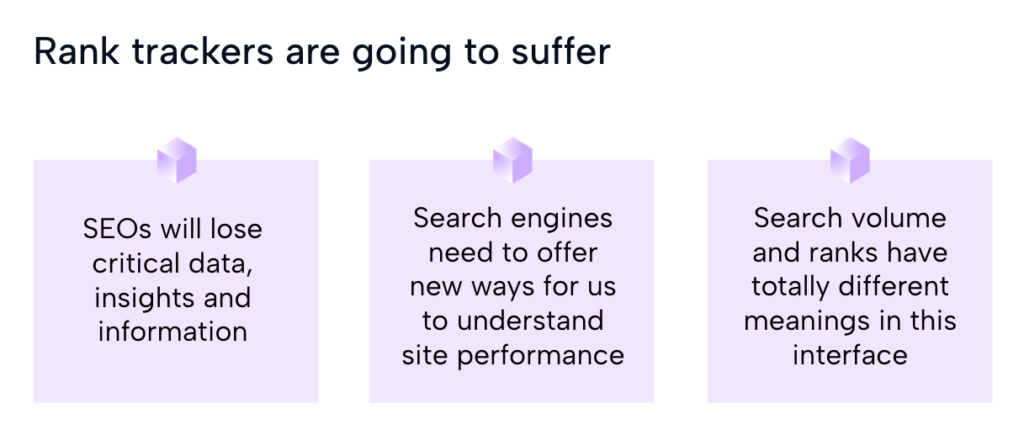
This doesn’t mean some parts of the industry will not suffer to some extent. When it comes to rank trackers, Jessier believes they will need to adapt, or die. The weight we put on certain metrics are likely to change as AI increasingly performs searches for humans, and the best insight might be coming from new data sets.
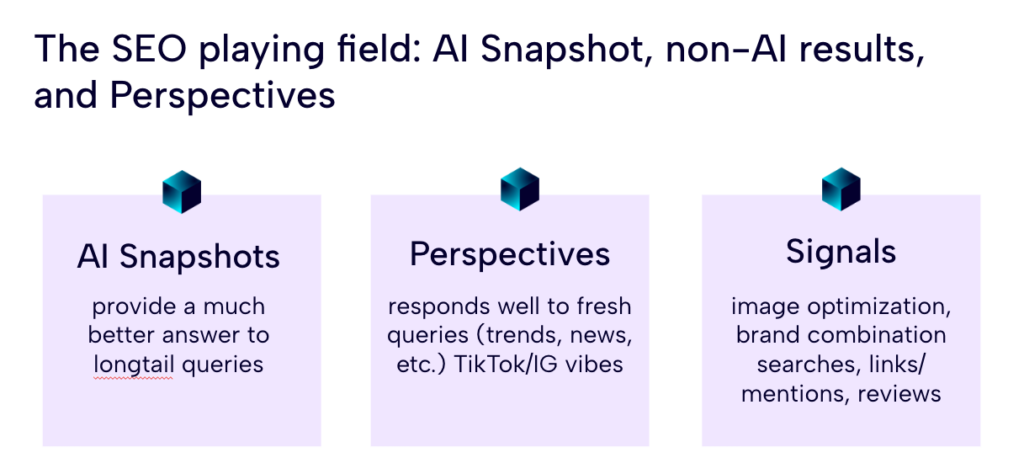
If we look to the context of the SERPs themselves, Jessier also points to potential AI snapshots as a better option for answering longtail queries, while actual human-written results may be given extra visibility (see Google Perspectives).
For SEOs, this will potentially mean fiercer competition and, crucially, less clicks.
“We have to get smarter and think about what are the touchpoints, what do people really want, and what if they didn’t have to put up with the stuff they used to put up with,” Jessier says. “What’s the value that we bring?’”
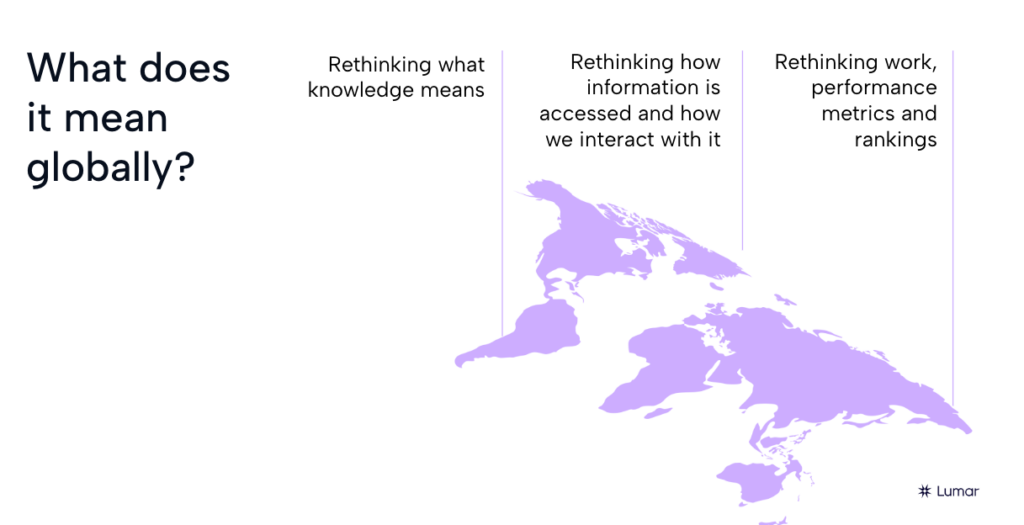
AI and SEO Careers
In starting to think about those of us working in SEO, Jessier is keen to point out the persistence of algorithmic blind spots.
Jessier refers to the quote from David Perell:
“We find growth while searching for other things. Algorithms give us exactly what we want on demand, so we never need to search, and never get what we never knew we needed. If you wish to grow, defy the robots’ recommendations.”
David Perell, Algorithmic Blindspots.
In addition to this, Jessier notes that AI tends to deliver the blandest version of a piece of content.
This means that going forward, SEOs may be tasked with deciding whether to work to monetise this particular kind of content, or to invest in feeding the machine. Certain brands may want to ban any AI content altogether. Or it might become necessary to flag it up, in a similar way to when sponsored content is used in print and online.
Jessier also highlights the many kinds of questions that large language models like ChatGPT just aren’t well-suited to answer. After all, if you are looking for authoritative insight from a world-recognised whisky collector, you want a world-recognised whisky collector, not a trained LLM.
“At the end of the day, an LLM does not understand things,” they say. “It doesn’t have morals, it doesn’t have opinions, it can’t predict the future. It can just gauge what the next word should be.”
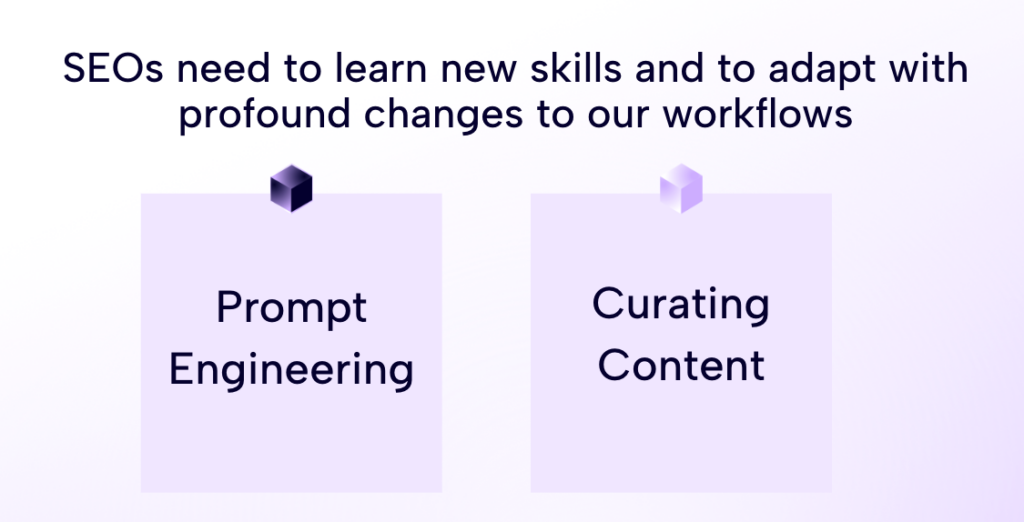
Even as a sustaining technology, Jessier believes SEOs will also need to learn new skills like prompt engineering, so they can fundamentally understand what makes a good prompt and why it’s good, and be able to refine them.
The future of SEO content may also be more about curation rather than writing, which Jessier welcomes.
“We’re moving away from just churning out stuff, to curating content,” they say. “Curation is not the same thing. It used to be a skill that was highly prized.”
In this new era of AI-generated content, creating volume isn’t necessarily adding value for users.
Value is still important to consumers and it is still important to Google.
Workflows
According to Jessier, AI will shift the way content is created, requiring new approaches and strategies to stand out in the market.
Some key questions SEOs will need to be asking going forward will be: Who said this content? Do users really want to listen to it? Why are we making content? What are we trying to achieve? How will it help people?
In prepping content, Jessier notes that LLMs can help with some of the more boring time-consuming areas of research – for instance scraping competitor websites in order to understand what their concerns and talking points are.
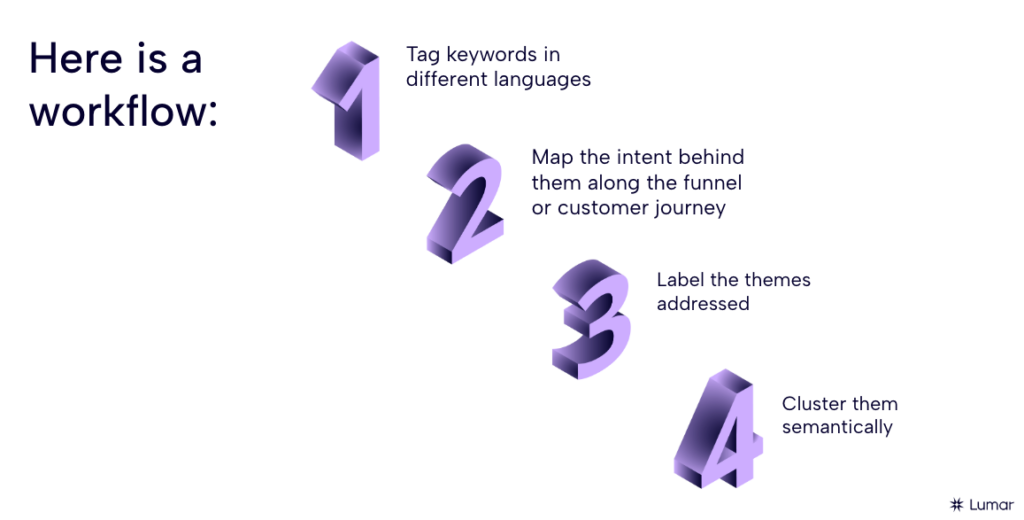
Jessier also gave a couple of example workflows for how LLMs can be of use, firstly looking at tagging keywords in different languages, and mapping the intent behind them along the funnel or customer journey. It may not be perfect and, again, the reminder to curate is important here. But it might give you things you’re not thinking about, like internal linking opportunities. By labelling the themes addressed and then clustering them semantically, you can also get an idea of which clusters have a better chance of succeeding.
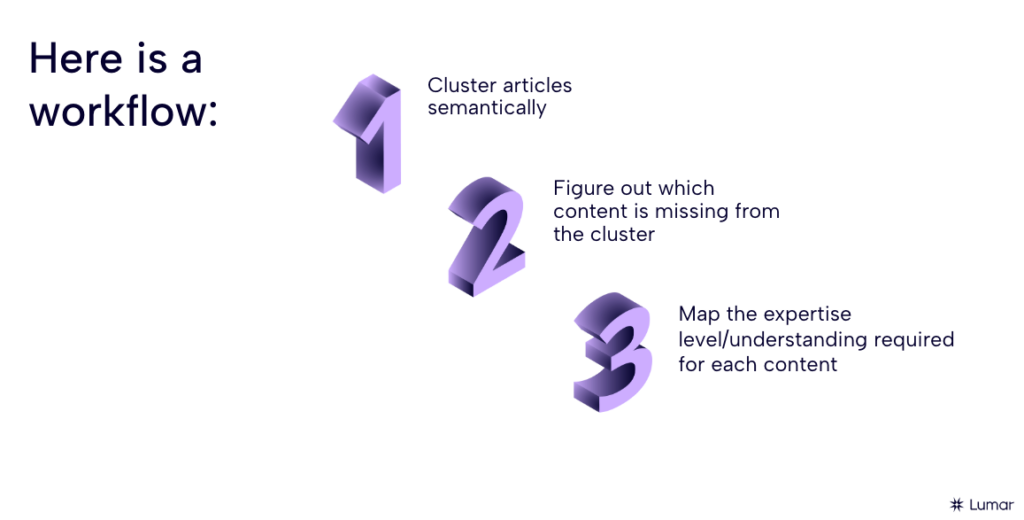
In another example, articles can be clustered semantically, and ideas around which content might be missing can be generated. You can then map the expertise level or understanding that’s required for each content.
Jessier notes that AI-generated content can perform well in search results if the quality is high, and it is primarily functional content – from financial information to horoscopes.
Beyond content itself, AI that helps automate reports and analysis is increasingly useful at that point in the workflow. But again, curation is key. AI tools can sift through huge amounts of data and uncover trends humans might miss, but it might also give you opinions that you don’t want to follow. “This is how reporting gets better,” Jessier says, “AI does the boring part, now we need your brain on it.”
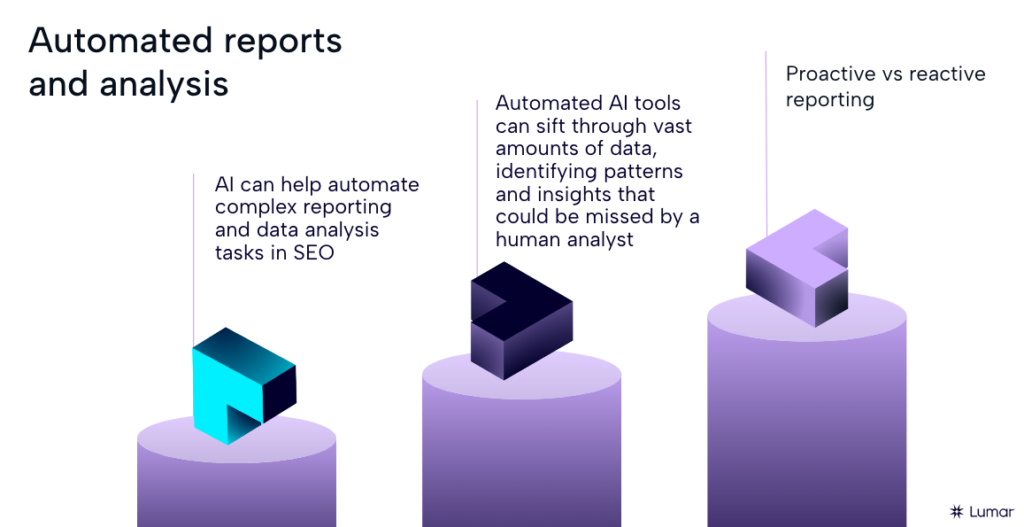
Ethical and Societal Considerations
For Jessier, this is the real paradigm shift in terms of how we understand content as a society.
In thinking about the ethics and societal considerations of AI in search, Jessier refers to what they call: The art of BS.
Both search engines and SEOs have a responsibility, here, to be aware of mimicry and the proxies used to evaluate quality.
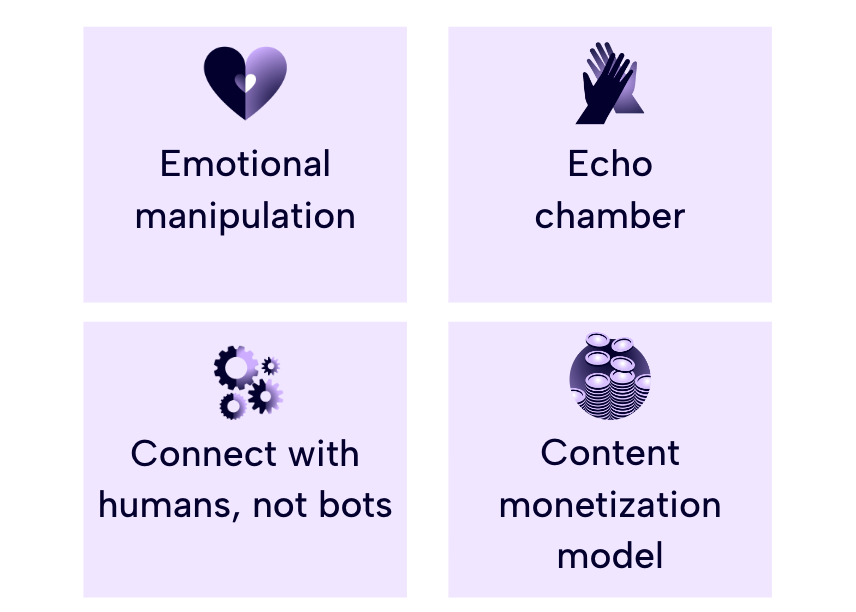
Jessier also points to biases in LLMs.
“Cognitive biases illustrate the indelible imprint of our human psychology on the technologies we create and use,” Jessier says. “We are baking our biases into these tools.”
But as we move forward, SEOs not only need to be asking: What was this trained on? But we also need to be asking whether users who want specific pieces of content deserve to be given bot-written content rather than that made by humans.
What is the ethics behind delivering AI content to users who want a specifically human answer? This ties back to the real value of SEO content and the notion of search marketers as curators. Ultimately, it’s hard to know for sure – but there is still undoubtedly a future for the human touch in SEO.
Further reading:
- 2023 SEO Trends: Be Smart About Artificial Intelligence & AI-Generated Content
- How to Use Google’s E-A-T Guidelines to Build Topical Authority for Your Website
Connect with the webinar speakers
- Myriam Jessier, SEO Consultant & Corporate Trainer
- Anne Berlin, Senior Technical SEO at Lumar 👋


